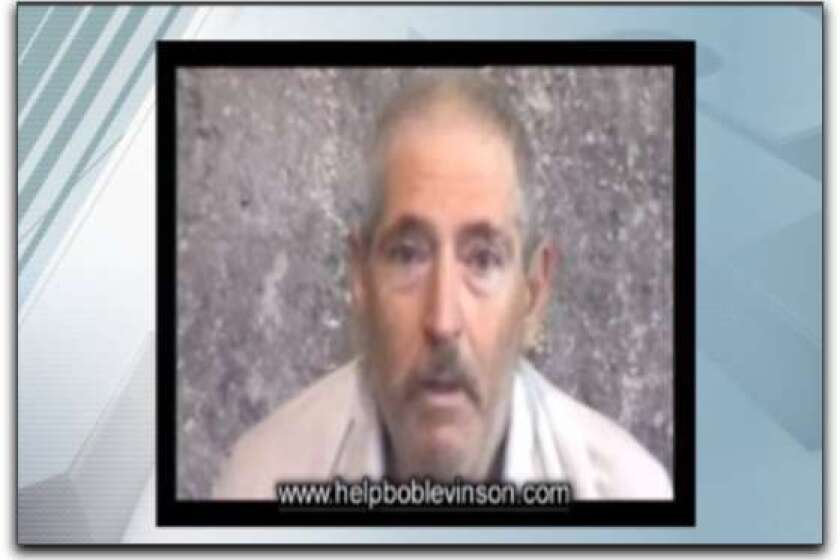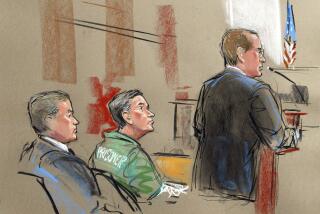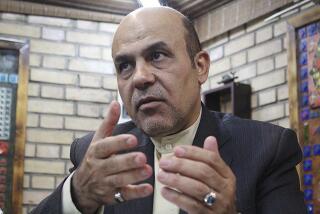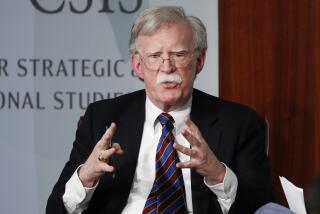U.S. believes ex-FBI agent Robert Levinson has died in Iran’s custody, his family says
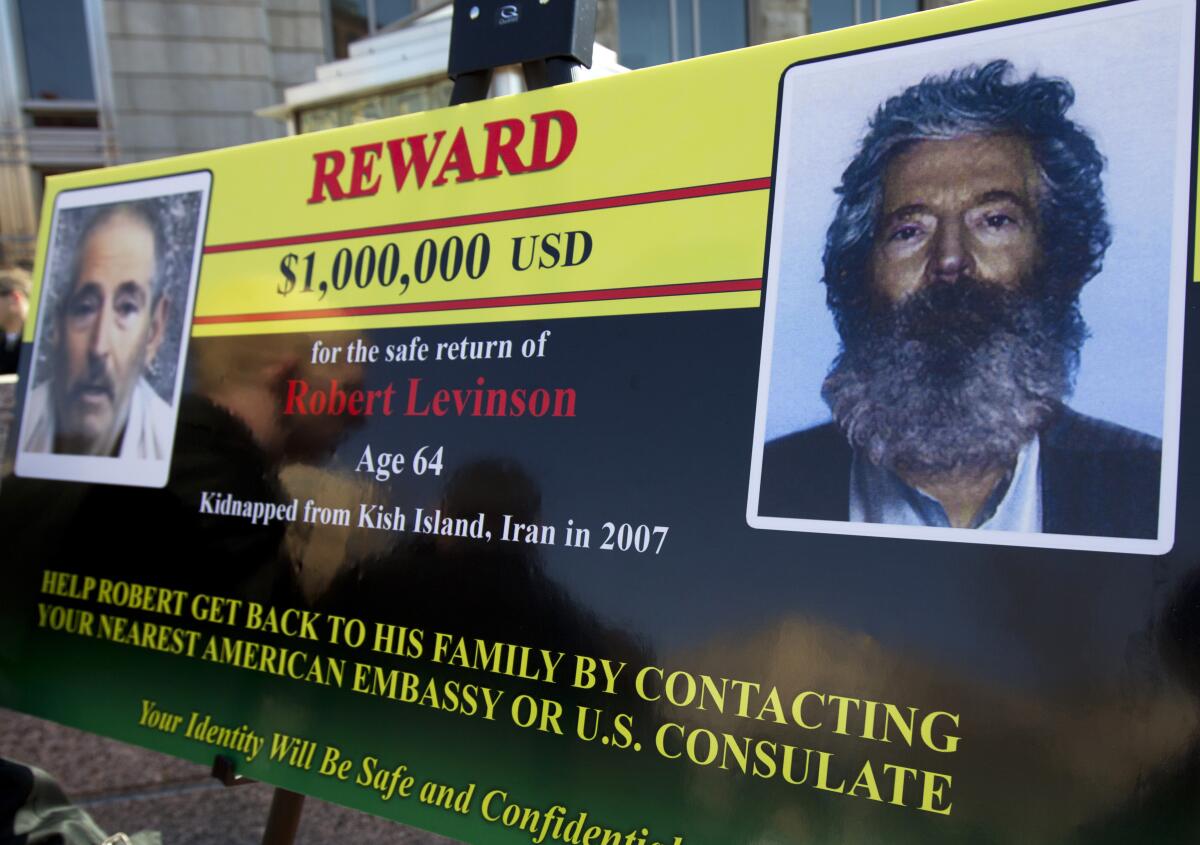
WASHINGTON — The U.S. government has concluded that retired FBI agent Robert Levinson, who vanished more than a decade ago, died while in the custody of Iran, his family and administration officials said Wednesday.
The circumstances and timing of Levinson’s death were unclear, but White House national security advisor Robert O’Brien said Wednesday evening that the U.S. believes Levinson “may have passed away some time ago.” Hours earlier, his family said information U.S. officials had received had led them to conclude he was dead. Neither the government nor the family described that information.
The death is believed to have occurred before the recent outbreak of the coronavirus that has gravely affected Iran and another countries, according to a statement from Levinson’s family.
The government’s acknowledgment of Levinson’s death came hours after a White House briefing in which President Trump appeared to equivocate on the news, saying, “I won’t accept that he’s dead.”
U.S. officials communicated the news to Levinson’s family in a meeting in Washington in recent weeks, according to a person familiar with the situation who spoke on condition of anonymity to discuss the private encounter. The person said the information about Levinson had come from Iran’s foreign minister.
“It is impossible to describe our pain,” the family’s statement said. “Our family will spend the rest of our lives without the most amazing man, a new reality that is inconceivable to us. His grandchildren will never meet him. They will only know him through the stories we tell them.”
Levinson disappeared on March 9, 2007, when he was scheduled to meet a source on the Iranian island of Kish. For years, U.S. officials would say only that Levinson was working independently on a private investigation. But a 2013 Associated Press investigation revealed that Levinson had been sent on a mission by CIA analysts who had no authority to run such an operation.
The Trump administration has made it a priority to seek the release of American hostages and prisoners detained overseas. Last week, administration officials touted the release from Lebanon of a New Hampshire restaurant owner jailed on decades-old allegations and the medical furlough of a Navy veteran from an Iranian prison.
Robert Levinson has been held in Iran for seven years. It’s time the U.S. fulfills its duty to him and brings him home to his family.
The family received proof-of-life photos and a video in late 2010 and early 2011, but his whereabouts and fate were not known.
The Levinson family thanked multiple U.S. officials for their help, including FBI Director Chris Wray, CIA Director Gina Haspel, Secretary of State Michael R. Pompeo and O’Brien, who before his post as national security advisor also served as the State Department’s chief hostage negotiator.
The family statement also said: “Those who are responsible for what happened to Bob Levinson, including those in the U.S. government who for many years repeatedly left him behind, will ultimately receive justice for what they have done. We will spend the rest of our lives making sure of this, and the Iranian regime must know we will not be going away.”
The family said it does not know when or if Levinson’s body will be returned for burial.
At a White House briefing on the coronavirus, Trump resisted confirming the family’s account, saying that Iranian officials had not told the U.S. about Levinson’s fate and that “I won’t accept that he’s dead.”
But he also acknowledged that “it’s not looking promising” and said Levinson, who had diabetes and high blood pressure, had had “some rough problems” before his disappearance.
“He was a great gentleman,” he said.
Around the same time, though, the White House’s acting national intelligence director appeared to confirm Levinson’s death with a tweeted statement conveying condolences to the family. And by the evening, the White House issued a new statement designed to remove some of the uncertainty expressed by the president.
“As President Trump said today, Iran must provide a complete accounting of what occurred with Bob Levinson before the United States can fully accept what happened in this case,” O’Brien said. “While the investigation is ongoing, we believe that Bob Levinson may have passed away some time ago.”
The family received a video in late 2010 as well as proof-of-life photographs in 2011 in which he appeared disheveled with a long beard and wearing an orange prison jumpsuit like those given to detainees at the Guantanamo Bay prison. Even then, his whereabouts and fate were not known.
Iran repeatedly has said that it has no information about Levinson, though U.S. diplomats and investigators have long said they thought he was taken by Iranian government agents.
In November, the Iranian government unexpectedly responded to a United Nations query by saying that Levinson was the subject of an “open case” in Iranian Revolutionary Court. Although the development gave the family a burst of hope, Iran clarified that the “open case” was simply an investigation into his disappearance.
The announcement of his death comes just weeks after a federal judge in Washington held Iran liable for his disappearance, saying the country was “in no uncertain terms” responsible for Levinson’s “hostage taking and torture.”
The judge’s decision followed a weeks-long trial of emotional testimony from Levinson’s family, including from each of his seven children.
More to Read
Sign up for Essential California
The most important California stories and recommendations in your inbox every morning.
You may occasionally receive promotional content from the Los Angeles Times.
